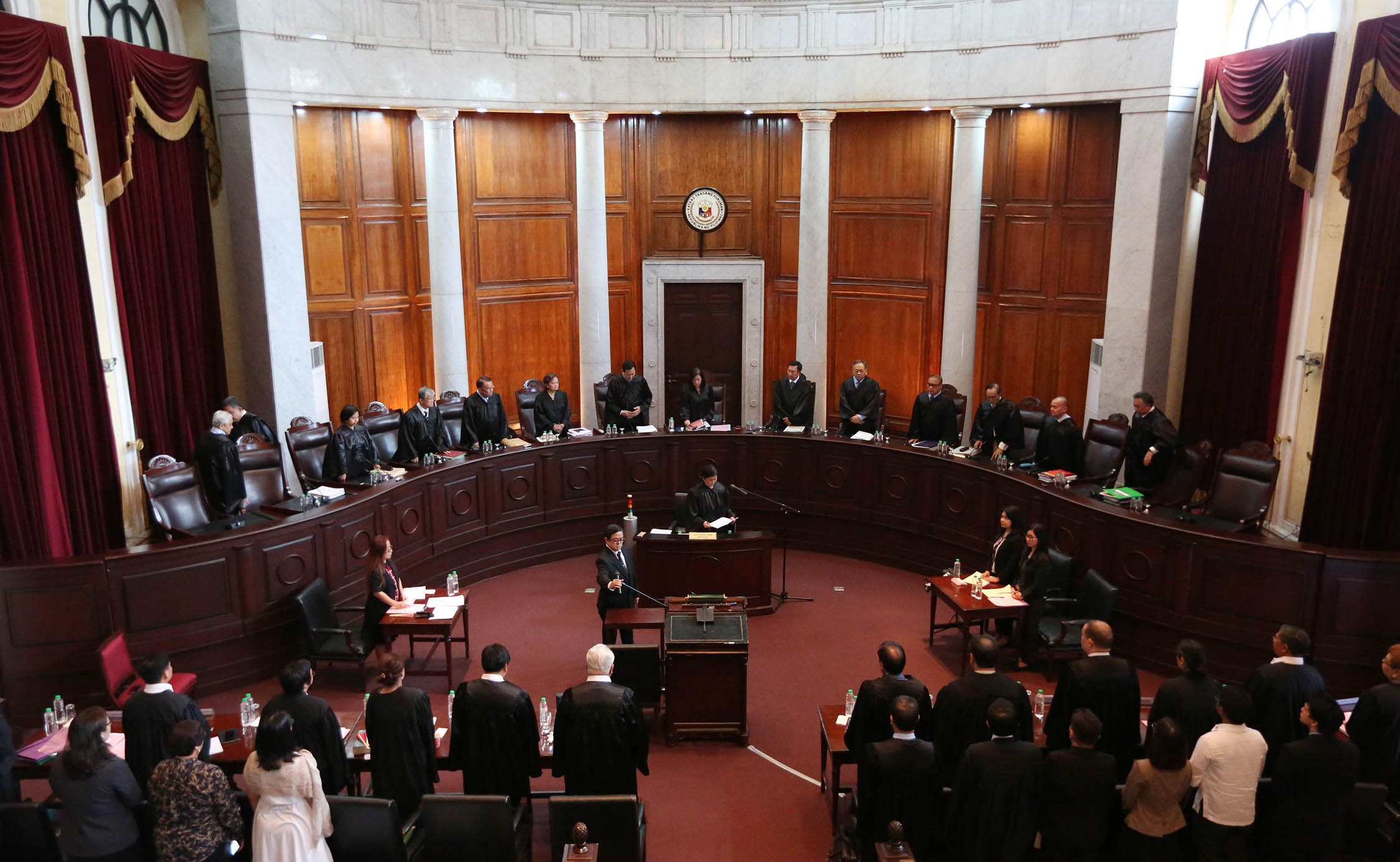
Justices of the Supreme Court of the Philippines. INQUIRER FILE/ MARIANNE BERMUDEZ
MANILA, Philippines — The Supreme Court (SC) on Tuesday affirmed the legality of third martial law extension in Mindanao.
“The Supreme Court ruled to uphold the constitutionality of the extension of the declaration of martial law and the suspension of the privilege of writ of habeas corpus in Mindanao until December 31, 2019,” SC Public Information Chief Atty. Brian Keith Hosaka said at a press conference.
Nine justices voted in favor of the extension while four dissented.
The nine Justices are Chief Justice Lucas Bersamin, Associate Justices Diosdado Peralta, Mariano Del Castillo, Estela Perlas-Bernabe, Andres Reyes Jr., Alexander Gesmundo, Jose Reyes Jr., Ramon Paul Hernando and Rosmari Carandang. Carandang, the newest member of the court, is the justice in-charge of the case.
The Justices who dissented are Senior Associate Justice Antonio Carpio and Associate Justices Marvic Leonen, Francis Jardeleza and Alfredo Benjamin Caguioa.
Last December, Congress, in a joint session voted 235-28 in favor of extending martial law up to Dec. 31, 2019. It also still carries with it the suspension of the privilege of the writ of habeas corpus.
Four petitions challenged the legality of the third martial law extension.
The petitioners-opposition lawmakers led by Albay Rep. Edcel Lagman, the militant party-list lawmakers led by Bayan Muna party-list Rep. Carlos Isagani Zarate, the group led by former Comelec chair Christian Monsod, and that of lumads from Mindanao assisted by the Free Legal Assistance Group maintained that the third martial law extension has no factual legal basis and that the violent incidents, including four bombings cited by the military in its report were not acts of rebellion but rather acts of terrorism that can be addressed without resorting to martial law.
During the oral argument, they said that while terrorism has the purpose of sowing fear and panic among the populace, rebellion is an armed uprising against the government for the purpose of removing the country or a portion thereof from allegiance to the Republic or preventing the President or the Congress from exercising their respective powers.
They pointed out that under the 1987 Constitution, martial law can only be proclaimed if an actual rebellion or invasion exists and when public safety requires it.
But Solicitor General Jose Calida insisted that the extension has more than enough basis as he cited attacks by terrorist groups such as the Jolo cathedral bombing and that of the communist New People’s Army.
He said these attacks were clearly acts of rebellion against the duly constituted authorities.
Calida also cited data from the military saying that there are still 424 active members of Abu Sayyaf group in 138 barangays in Basilan, Sulu, Tawi-Tawi and Zamboanga; 264 members of Bangsamoro Islamic Freedom Fighters in 50 baragays; 59 members of Saulah Islamiyah; six members of Maguid Group; and 85 members of Turaifie Group.
Calida also dismissed the contention of the petitioners that the SC has the power to review the decision of Congress to extend martial law, saying it is beyond judicial review.
He said the SC has already recognized this when it ruled twice to upheld martial law proclaimed by President Duterte in May 2017 after members of the ISIS-linked Maute terrorist group attacked Marawi City. /cbb